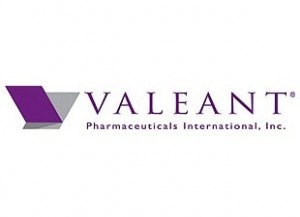News that Montreal-based Valeant Pharmaceuticals Intl Inc (NYSE:VRX) was in talks to merge with Parsippany, New Jersey-based Actavis Inc (NYSE:ACT) emerged barely a week after the completion of the company’s tender offer for Obagi Pharmaceuticals (OMPI). Although the deal remains in its early stages and has been the subject of wild and conflicting rumors, it could prove to be one of the largest pharmaceutical mergers in recent years. Its current value is estimated at $13 billion.

Although it employs just 7,000 people, Valeant Pharmaceuticals Intl Inc (NYSE:VRX) is a major player in the fast-evolving dermatology and neurology sub-fields of the pharmaceutical industry. The company sells over-the-counter dermatology products like AcneFree and CeraVe as well as specialized prescription drugs like popular Zovirax Ointment and the powerful Retin-A acne treatment. By contrast, Actavis Inc (NYSE:ACT) engages in a wide range of activities. Its principal dermatology offerings include generic products like various acne creams as well as the AndroDerm and AndroGel hormone skin treatments.
Financial Comparison: Valeant, Actavis and Teva Pharmaceuticals
Valeant, Actavis and Teva Pharmaceutical Industries Ltd (ADR) (NYSE:TEVA) all engage in a variety of overlapping areas of operation. Of the three, Teva has the largest market capitalization. With a market cap of between $22 and $23 billion, Valeant Pharmaceuticals Intl Inc (NYSE:VRX) is roughly two-thirds the size of Teva. Actavis’s market capitalization of around $13 billion puts it at about 40 percent of the size of Teva.
Two of these companies are narrowly profitable. In 2012, Actavis Inc (NYSE:ACT) earned about $97 million on revenue of about $5.9 billion for a profit margin of just over 1.6 percent. Meanwhile, Teva earned about $2 billion on gross revenue of $20.3 billion for a margin of just under 10 percent. For its part, Valeant Pharmaceuticals Intl Inc (NYSE:VRX) posted a narrow loss of about $116 million on revenue of over $3.5 billion. This made for a marginal loss of just over 3.5 percent.
All three of these firms are highly leveraged. With a cash balance of $328 million and a debt load of nearly $6.5 billion, Actavis is the most debt-ridden of the bunch. With $920.5 million in cash on hand and debts of about $11 billion, Valeant is not far behind. Meanwhile, Teva Pharmaceutical Industries Ltd (ADR) (NYSE:TEVA) has $1 in cash for every $6.50 in debt that it carries on its books.
How the Deal Might Happen
Although the deal is still in the exploratory phase, rumors that Valeant Pharmaceuticals Intl Inc (NYSE:VRX) and Actavis are in serious talks have excited investors. Any deal that emerges between the two companies is likely to value Actavis at $13 billion or more and create a company with combined annual revenue of nearly $10 billion.
In all likelihood, such a merger would involve a cash-for-stock purchase or tender offer. As the acquiring firm, Valeant would need to use a combination of leverage and cash to finance the deal. This could prove problematic. Since Valeant is highly leveraged at the moment, it might find it difficult to put together the financing necessary to set the transaction in motion. Indeed, the company is obviously looking for the best possible deal. During the first week of May, Valeant Pharmaceuticals Intl Inc (NYSE:VRX)’s management team quashed the early exuberance that surrounded the deal by announcing that the talks had hit a serious price-related speed bump. Neither company has indicated if he talks might restart. Likewise, no timetable for completion has been set.
How the Combined Company Might Look
As noted, the combined company would boast revenue of nearly $10 billion a year and enjoy a major foothold in the booming dermatology products market. Indeed, it would hold the rights to several key brand-name drugs like AndroGel and AndroDerm as well as the formulas for many popular generic compounds. This would be exciting for investors who believe in the potential for further expansion in the dermatological sub-field. On the other hand, the combined company would be heavily indebted and might still be recovering from a slew of earlier acquisitions. Despite raising full-year profit guidance figures, both Valeant and Actavis have recently reported acquisition-related charges.
Long-Term Outlook and Possible Plays
In sum, the dermatology sub-field has exhibited solid growth on the strength of popular acne treatments and topical hormone therapy creams. Valeant Pharmaceuticals Intl Inc (NYSE:VRX) and Actavis Inc (NYSE:ACT) have both profited from this growth. While the two companies engage in other activities, their core strengths lie here. If they ultimately merge, the combined firm could be a powerful force in this space; however, this deal is by no means assured. Investors who remain skeptical of the deal’s timely completion would do well to remain on the sidelines for the time being. Alternatively, well-researched long positions in Actavis may pay off handsomely in the event that the merger does go through as planned. In either case, these two companies bear watching.
The article Following Up an Acquisition With an Even Larger Merger? originally appeared on Fool.com and is written by Mike Thiessen.
Copyright © 1995 – 2013 The Motley Fool, LLC. All rights reserved. The Motley Fool has a disclosure policy.

